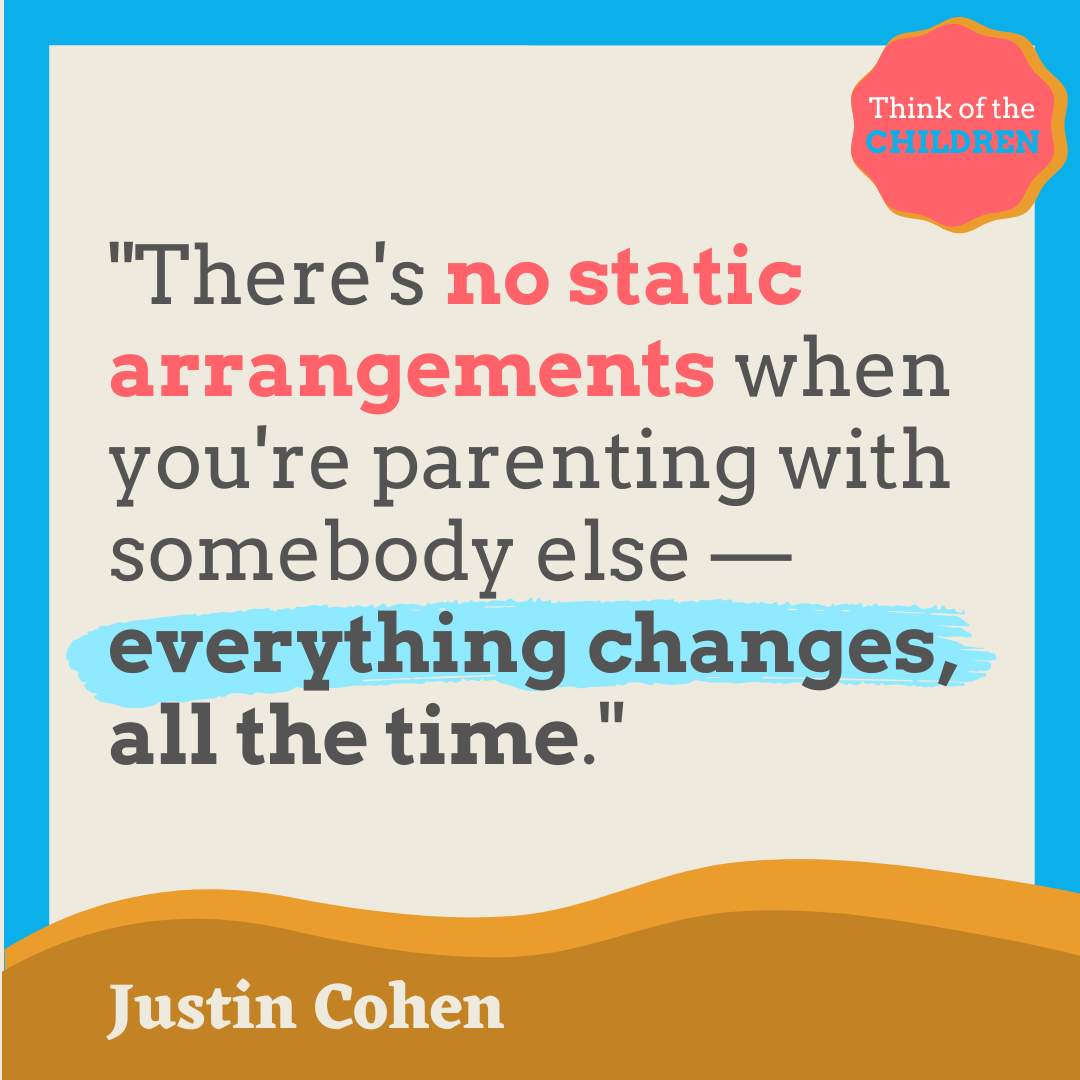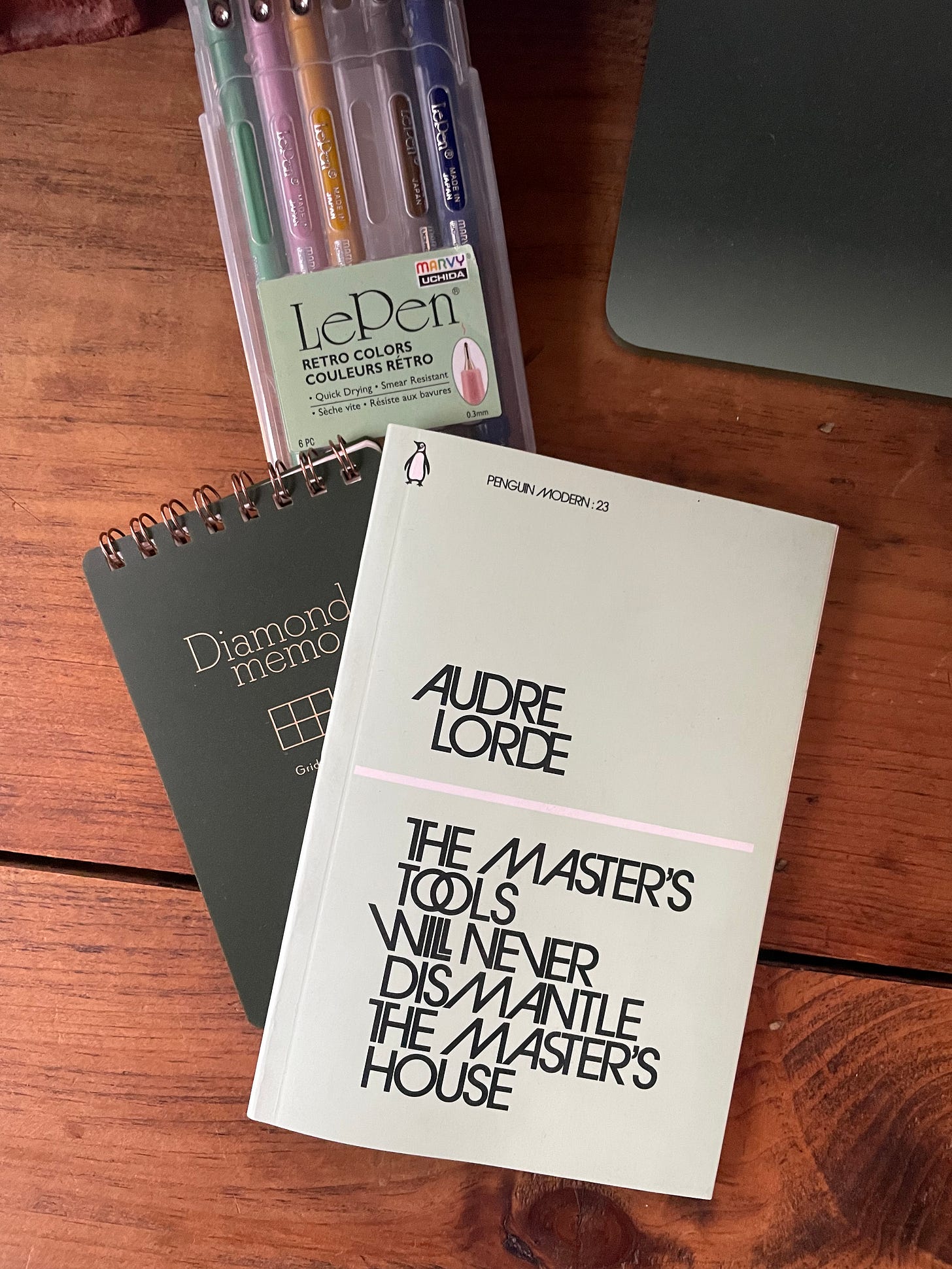50/50 Parenting:
1. Myth? Reality? Some Secret Third Thing?
Two Saturdays ago Justin had an unusually long childcare shift. While most Saremzadeh-Cohen weekends are spent enjoying family time - which we crave after weekdays of working - on this particular Saturday, Sheila partook in some much deserved self care, while Justin did dad duty for nine consecutive hours.
Justin, as a result, was insufferable.
After his grueling shift as an adult parent, Sheila joined Justin at a kid’s birthday party, newly invigorated from stimulating interactions with adults. Meanwhile, Justin moaned as if he had just solo climbed Everest, rather than solo parented for a single day. He breathlessly regaled our friends with tales of his heroism, or, to put it another way … he described what most moms throughout history have done every fucking day without either interruption or accolade.

We’re exaggerating (sort of) to make a point here, but the situation may sound familiar, especially to cis-hetero couples raising kids, not just in America, but throughout the world.
Mom gets no extra credit, no matter how much actual childcare labor she does. Dad, meanwhile, collects participation trophies for doing anything at all.
“When it comes to Millenials and GenExers,” notes author Nevin Martell, “many of our own dads, no matter awesome they are, did almost no labor when it comes to childcare. So even if we do just a little bit, it looks heroic by comparison.” Data validates this dynamic, wherein one party becomes accustomed reaping rewards for clearing a bar lower than the bass in a rented Escalade. Research from Pew indicates that men today expect to do more childcare labor than their own fathers did, and that those same dads believe that they are, in fact, doing more.
What constitutes “more,” however, is relative …
(“50/50 Parenting” Essay continued in Part 5 below … seriously, there are like 700 more words, because #Justin.)
2. Enough Chit Chat! What Do YOU Think?
We know many other families who are approaching parenting through a lens that isn’t strictly traditional, even if they’re not describing it as “50/50.”
We want to hear those stories.
You don’t need strong perspectives about the meta-socio-cultural consequences of those parenting decisions (points awkwardly at Justin) to have opinions about them.
In the next several months, we will be holding one-on-one conversations with other parents to hear how you’re managing the kinds of … tensions … we describe above.
We’re holding a limited number of spots for focus groups as well, as we know that not everyone wants to be interrogated by Justin and/or Sheila and/or a secret third person asking probing questions about parenting.
The next focus group will be from 3:30-4:30PM Eastern on March 1. If you’re interested in joining that, email wordswordswordsllc at gmail dot com.
Justin is crafting a broader project about these ideas, so please share this newsletter with friends and colleagues who you think may be interested. Have a friend with hilarious parenting takes? Share! We want to hear those takes! Have other friends who are on the verge of having kids? Share with them too!
3. Sheila & Justin Review Classic Children’s Literature
As regular Spinning Plates readers know, we like to criticize children’s literature. Picking a book to read for this edition was not difficult. Our family estimated the number of times we read Peggy Rathmann’s Goodnight Gorilla between June and December of 2022.
Our conservative guess was 480.
Is it amazing? Yes.
Is it possible to get TOO much of a good thing? Also yes.
Goodnight Gorilla is an easy book to love, though. In large, board format its dark backgrounds bleed across two-page spreads. The action peaks in four jet black panels, peppered with white word bubbles and blobs, as a shocked woman realizes that many of the nearby zoo’s animals have come to sleep in her room.* The mastermind behind the unsanctioned slumber party is the titular Gorilla, who executes his plan by stealing keys from Joe, a hapless green guard in a stormtrooper getup. Joe stumbles through his security job, while Gorilla releases Comrades Giraffe, Lion, Elephant, Armadillo, and Hyena, all of whom later occupy the humans’ bedroom. #FreeThemAll
Describing what’s special about Goodnight, Gorilla is impossible without genuflecting in the direction of Margaret Wise Brown, whose 75-year-old Goodnight Moon looms like a colossus above the lulling-infants-to-sleep subgenre. In a recent New Yorker retrospective on her corpus, Anna Holmes notes that writers like Wise Brown and her contemporaries steered away from a zeitgeist that “considered stories without morals to be a waste of time,” and instead hewed closer to the “emotional and sensory interests of young children.”

That’s where Rathmann excels, too.
Slow, idiosyncratic pacing.
Large pictures of animals.
Little text.
All vibes.
Namely, the creeping sense that Joe isn’t really the zookeeper, despite his costume. Gorilla - or maybe a mouse with a banana-on-a-string - seems to be in charge.
What could delight a child more.
This book slaps. Maybe harder than any other goodnight book. Respectful shots fired in your direction, Margaret Wise Brown. Rathmann followed Goodnight, Gorilla with a Caldecott Medal winning book about *checks notes* an inept cop who uses a distracting cartoon dog to extract compliance from school kids, in case you’re wondering what we’ll be reviewing next.
*FOR SERIOUS GG READERS ONLY (cough Claire and Nathaniel cough): Who is the actual zookeeper? Is it Joe? Or is it the woman in bed? Both? Neither?
4. Elsewhere on the Internet
Want to hear more about the tricky dynamics of sharing parenting labor? Justin talked to Emily Popek, whose delightful voice you can experience at “Think of the Children.” The conversation was, dare we say, funny.
You should read and/or listen to all of it, and support “Think of the Children” while you’re at it!
Meanwhile, Justin and his pal Derek Mitchell were on the HTH Unboxed podcast, discussing Change Agents: Transforming Schools from the Ground Up, Justin’s most recent book!
If you haven’t already subscribed to Spinning Plates, now is a good time to do that!
5. 50/50 Parenting: Continued
(continued from above)
The gendered economic implications of 50/50 parenting are, perhaps, the most controversial (and consequential) ones. Researchers from the Center for American Progress examined childrearing households with two hetero parents and found striking disparities. Even when mom has the same, or even more, professional responsibilities than dad, mom still ends up doing more childcare labor. This disproportionate labor piles atop mom’s already lopsided share of household work. Read: cleaning, cooking, and mental load.
Arlie Hochschild previewed this dynamic a generation ago in her now classic on gender and parenting, The Second Shift, in which she considered the consequences of women entering the workforce in greater numbers. With two full generations of hindsight, Hochschild seems even more prophetic: as women strode into the workforce, men have stumbled, not so successfully, into childcare participation. We’re living in what Tyagi and Warren call The Two Income Trap, where instead of our society rebalancing both the home and the workplace to generate equity for both partners, women are asked to lean disproportionately into both spheres.**
In fairness to dads, there’s not a template for what it looks like to share parenting labor across genders. The convenient thing about chauvinism, which many men continue to practice, is that it provides a clear role for dad, however antiquated that role might be. Despite a lack of clarity about what replaces traditional masculinity, many contemporary dads are orienting themselves towards a different version of DadHood.
That’s a good thing.
That said, the jury is out on whether “50/50 Parenting” constitutes a legitimate goal, let alone an achievable standard.*** “How do we even assign time and value to parental contributions?” wonders Conor Williams of The Century Foundation, a primary caregiver to three young children. “At some point you just go down a rabbit hole of trying to figure out which kind of work a society decides to value.”
Angela Garbes spelunks into that very rabbit hole in her new book, Essential Labor. “The association of caregiving with women … runs deep,” she says. “Placing reproductive labor outside the capitalist sphere is what upholds the entire system.” Oxfam pegs unpaid global care work at close to $11 trillion on an annual basis, and during the pandemic Garbes used Amy Westervelt’s “Unpaid Labor Calculator” to determine that the estimated value of her domestic care labor alone was close to $300,000 in a single year.
If you roll your eyes at this line of thinking, keep in mind that your job likely values your labor based on *waves invisible hand* the marketplace. That betting on stocks pays better than raising humanity’s infants has nothing to do with actual ethics, and everything to do with upholding an economic system that enriches a tiny number of men who control the vast majority of the world’s wealth. The most direct way to deal with this house of cards would be to jettison our outdated notions of gender and capitalism, both of which are inadequate frameworks for tackling contemporary problems.
On the other hand, culture doesn’t change overnight, and more than 50% of American families continue to be two-parent, hetero households, where mom does way more actual work than dad.
While we anxiously await a world where such imbalances are a thing of the past, billions of women keep our current one afloat without remuneration.
**Elizabeth Warren and Amelia Warren Tyagi wrote a banger of a book, and I suspect that more people could engage with its premises it if they hadn’t already formed an opinion about its contents based on their political disagreements with the brilliant Senator.
***Framing the gendered aspects of co-parenting in 50/50 terminology situates a fundamentally gendered inequity in capitalistic terms. Because: hashtag sigh hashtag life.
The people who most need to engage in this conversation are men with race and class privilege, who, at the very least, might be encouraged to entertain the problem, if not the solution, by framing it in terms they can hear.








so many truths in here. Funny enough, goodnight gorilla might be the only book with 0 words that we have in 2 languages in our household! lol